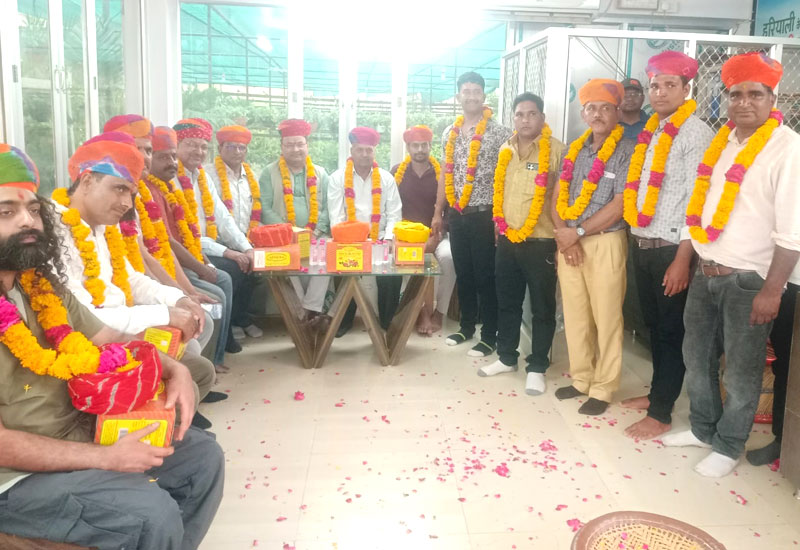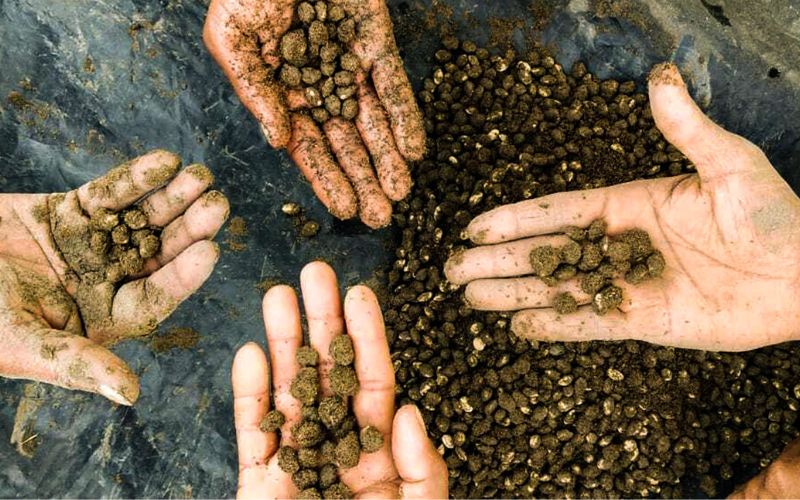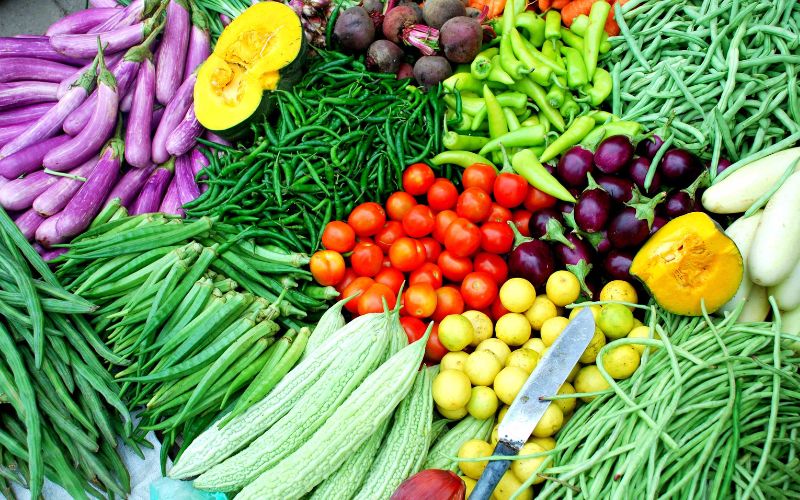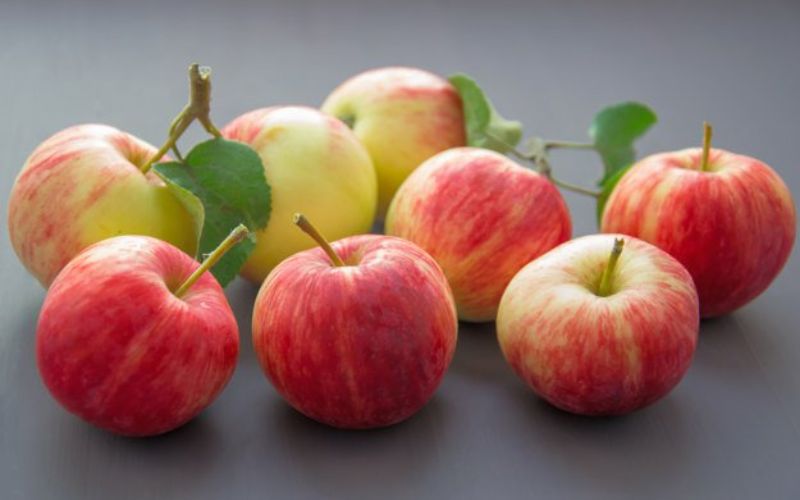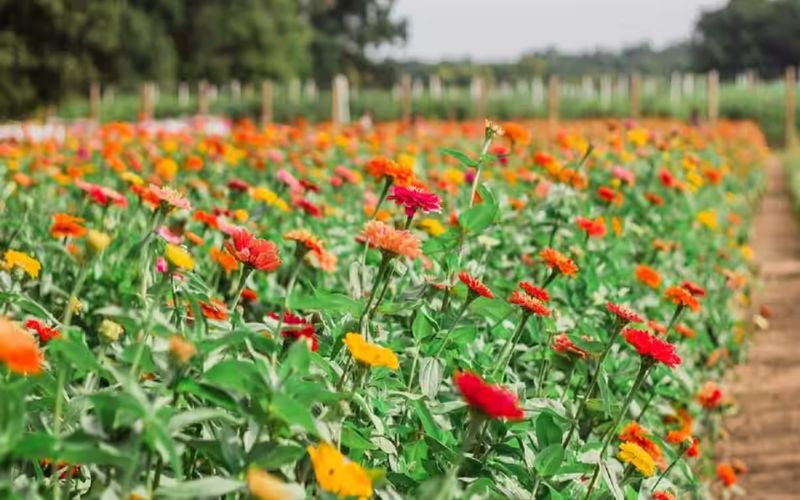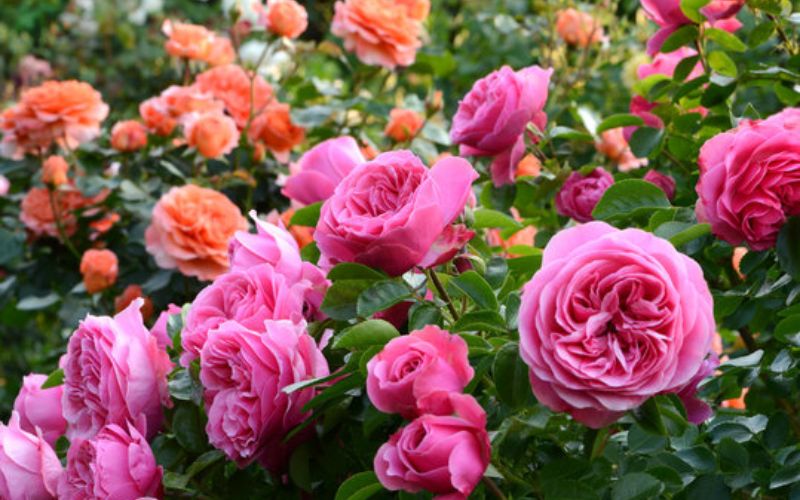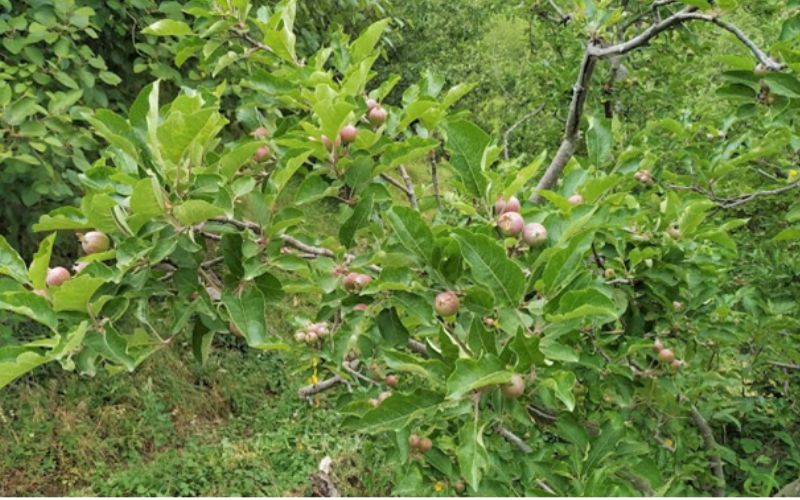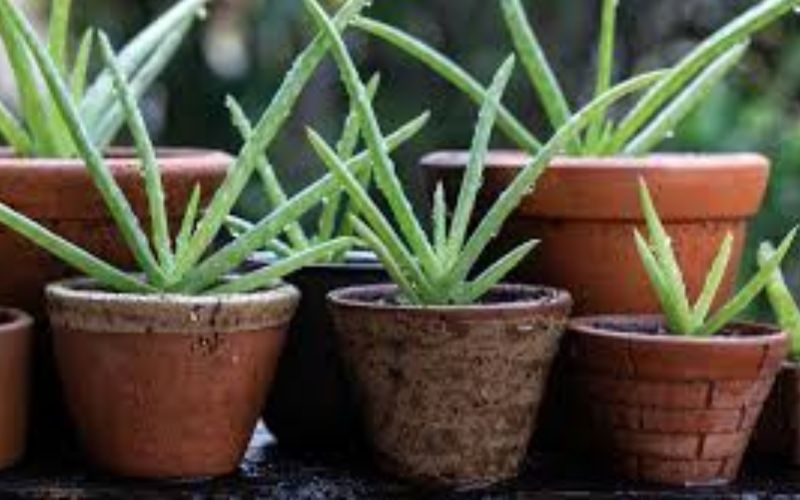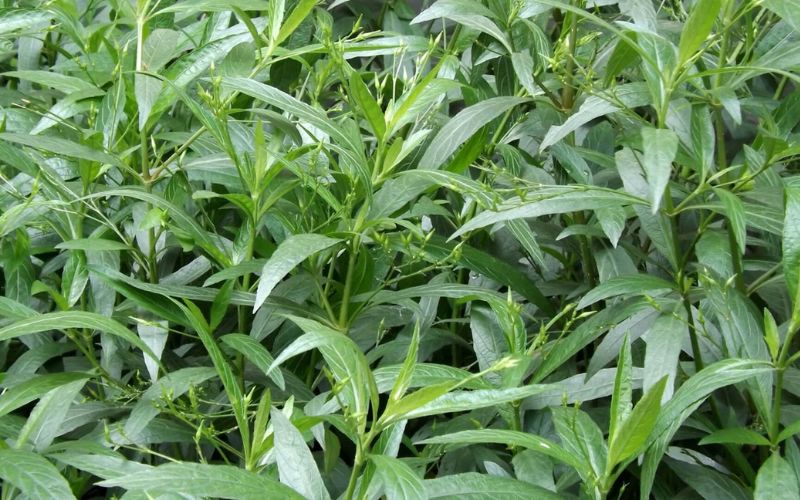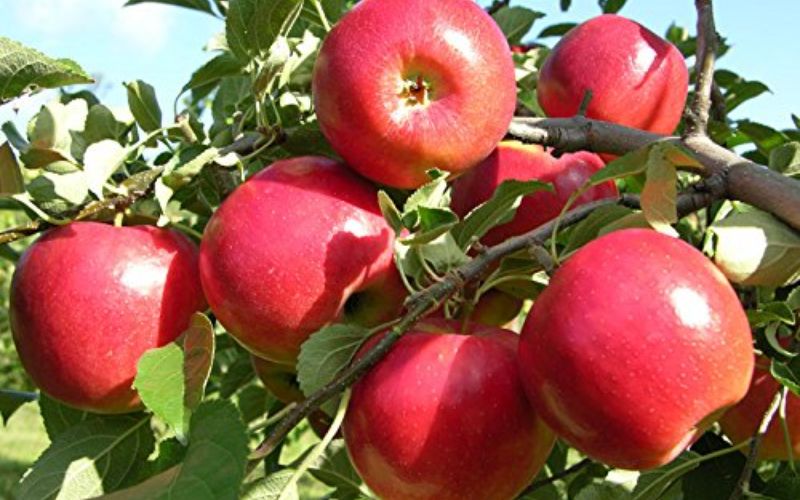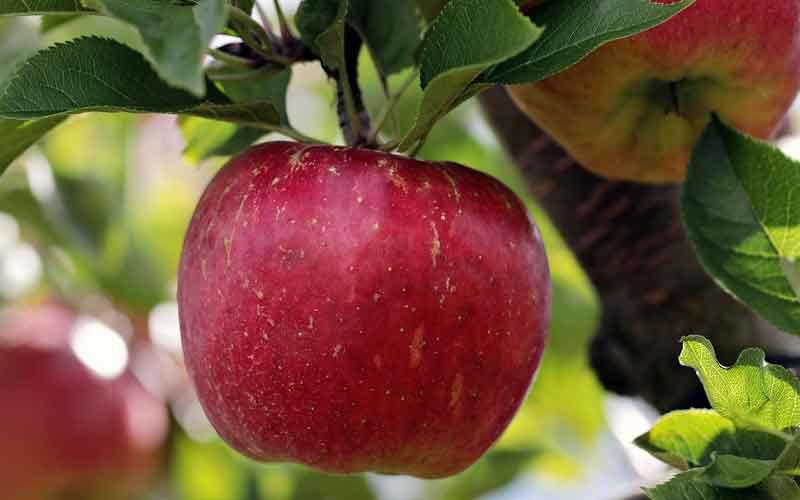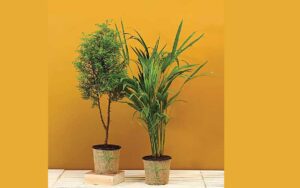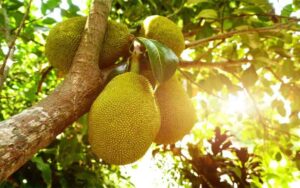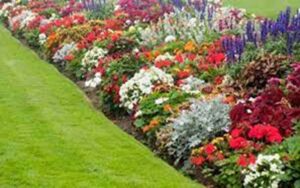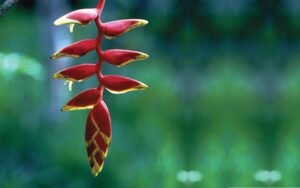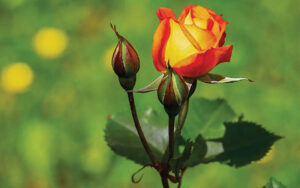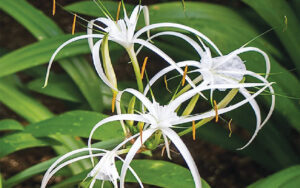International Apple Festivals in India: A new Vista for Orchardist
Dr. Vishal Mahajan
Introduction:
Apple, (Malus Domestica), the fruit of the domesticated tree Malus Domestica (family Rosaceae), is one of the most widely cultivated tree fruits. The apple is a pome (fleshy) fruit, in which the ripened ovary and surrounding tissue both become fleshy and edible. The apple flower of most varieties requires cross-pollination for fertilization. When harvested, apples are usually roundish, 5–10 cm (2–4 inches) in diameter, and some shade of red, green, or yellow in colour; they vary in size, shape, and acidity depending on the variety.
Apple varieties, of which there are thousands, fall into three broad classes: (1) cider varieties; (2) cooking varieties; and (3) dessert varieties, which differ widely but tend to emphasize colour, size, and aroma, smoothness, and perhaps crispness and tang. Many varieties are relatively high in sugar, only mildly acidic, and very low in tannin. Apples provide vitamins A and C, are high in carbohydrates and are an excellent source of dietary fibre.
Apple was introduced to North America by colonists in the 17th century, and the first apple orchard on the North American continent was planted in Boston by Reverend William Blaxton in 1625. The only apples native to North America are crab apples, which were once called “common apples. Apple is supposed to be originated in Eastern Europe and Western Asia.
Apple requires a considerable period of dormancy, it thrives in areas having a distinct winter period, generally from latitude 30° to 60°, both north and south. Northward, apple growing is limited by low winter temperatures and a short growing season. The soils in which apple trees grow must be well-drained; fertilizers can be used if the yield is not high enough. Rolling hilltops or the sloping sides of hills are preferred because they provide “air drainage,” allowing the colder, heavier air to drain away to the valley below during frosty spring nights when blossoms or young fruit would be destroyed by exposure to cold.
Scions of desired varieties are commonly grafted onto hardy nursery seedlings of about 18 months of age; orchard planting follows one or two years later. Management during the six to eight years before appreciable apple production is reached may consist of little more than protection from competing vegetation and pests. Careful attention to pruning is required, however, especially during the first five years, so that the main scaffold branches will be well distributed along the trunk and to prevent the development of weak crotches, which can break under heavy fruit loads. With mature trees, a rigorous spraying regime must be followed to protect against insect pests and possibly delay spring development, thin young fruit, and to hold the autumn drop of ripening fruit to a minimum.
In India, Apple is primarily cultivated in Jammu & Kashmir, Himachal Pradesh and Uttaranchal. It is also cultivated to a small extent in Arunachal Pradesh; Nagaland; Punjab and Sikkim. Major Producing States/Districts in India:
1) Jammu & Kashmir (Baramulla, Kupwara, Shopian, Kulgam, Badgam etc.)
2) Himachal Pradesh (Shimla, Kullu, Kinnaur, Mandi, Chamba etc.)
3) Uttrakhand (Uttar Kashi, Almora, Nainital, Dehradun, Chamoli etc.)
4) Arunachal Pradesh (West Kameng, Tawang etc.)
Total Area in India: 304.89Thousand ha. (2016-17) and total production in India: 2265.25 ThousandMT (2016-17).
Major commercial varieties: Category Varieties Clonal rootstocks M 9, M 26, M7, MM 106, MM 11 Scab resistant Prima, Priscilla, Sir Prize, Jonafree, Florina, Macfree, Nova Easy Grow, Coop 12, Coop 13 (Redfree), Nova Mac, Liberty, Freedom, Firdous, Shireen Hybrids Lal Ambri (Red Delicious x Ambri), Sunehari (Ambri x Golden Delicious), Chaubattia Princess, Chaubattia Anupam (Early Shanburry x Red Delicious), Ambred (Red Delicious x Ambri), Ambrich (Richared x Ambri), Ambroyal (Starking Delicious x Ambri) Low Chilling Michal, Schlomit, Anna, Tamma, Vered, Neomi, Tropical Beauty, Parlin’s Beauty Pollinizing Tydeman’s Early, Red Gold, Golden Delicious, Mc Intosh, Lord Lambourne, Winter Banana, Granny Smith, Starkspur Golden, Golden Spur.
Advance Technology: High density planting on Mailing root stock
Pre-cooling: Forced air Storage conditions temperature: -1.1˚ to 0˚C
Relative Humidity: 85-90% Storage Period: 4-8 Months
Peak Harvesting Season: 1) Jammu & Kashmir: September, October
2) Himachal Pradesh: August, September
3) Uttrakhand: July, August
4) Arunachal Pradesh: October Export from India (2017-18):
Quantity: 12.53 Thousand MT
Value: 391.66 crores Rupees
Apple festivals
Apple festivals are common across the western world. Its origin may dates to the 20th century in Canada, the USA and Europe. Ontario’s Applefest, founded in 1975, is held annually on the last full weekend in September. Events include BBQs and breakfasts, entertainment, children’s activities, dances, a street fair, a car show, arts and crafts, and a parade. In Warwick, New York, Applefest is held on the first Sunday of October in the streets and parks of the village of Warwick, located in the Hudson Valley of New York. It attracts over 30,000 people each year, usually coming from points south, Northern New Jersey and the New York City area.
In England, the apple festival popularly known as Apple Day is an annual celebration of apples and orchards, held in October. It is celebrated mainly in the United Kingdom. It traditionally falls on 21 October, the date of the first such event in 1990, but events are held throughout the month.
In India, state-level apple festivals are common in northern hilly states viz., J&K, Himachal Pradesh and Uttarakhand. The Uttarakhand government has introduced a string of fests to give a fillip to farm products of the state, where a rich variety of apples, mushrooms and organic honey are produced.
For the very time in Dehradun, Uttarakhand, India, Chief Minister Pushkar Singh Dhami inaugurated a three days International Apple Festivals organised in the state under Azadi Ka Amrit Mahotsav. An “International Apple Festival 2021” was organised by the Department of Horticulture and Food Processing, Uttarakhand on 24 – 26 September 2021 at Rangers College Ground, Dehradun. Companies from many countries including Turkey, and Nigeria including the Adani Group also participated in the festival. It also witnessed apple farmers from across the fruit belt of India, including Kashmir and Himachal Pradesh. In Uttaranchal, the apple is one of the major horticultural crops produced in the State. It accounts for 17% of the total area under fruit crop production in the State and 13% of the total fruit production. The State ranks third in the production of apples after Jammu & Kashmir & Himachal Pradesh accounting for 11% of the area and 5% of all India’s production of apples.
Director Horticulture, Uttarakhand, Dr. HS Baweja informed that different varieties of apples were displayed during the three-day international festival. In this, progressive farmers of Himachal and Jammu and Kashmir including Uttarakhand displayed their products. Various competitions were also be organized at the festival. This also includes the packaging of apples and their products.
Technical sessions were organised with eminent speakers. Farmers were given information about new technologies along with apple production. In this, experts from G. B. Pantnagar Agricultural University, University of Horticulture, Bharsar, Dr. YS Parmar University of Horticulture, Nauni, Himachal Pradesh delivered lectures on the topic of promoting apple production.
Key Points
– Apple growers from Himachal, Jammu and Kashmir, Uttarakhand and other states participated in the festival. About 50 apple varieties from across the country were included in this festival.
– The main objective of the festival is to promote apple production in the state and identify the apples of Uttarakhand to the international market so that the branding of Uttarakhand apples can be done from the national to the international market.
– On this occasion, Chief Minister Dhami announced the status of covid warriors to horticulture farmers/workers and also announced a doubling of the budget for the state government-run Mission Apple.
– He focused on delivering knowledge on better practices for growing apples in the state.
– The international apple festival brought Uttarakhand to a global platform and connected farmers and buyers all around the globe.
Apple farmers and agriculture students from Uttarakhand, Himachal Pradesh, and Jammu & Kashmir are visiting on a good scale. They are getting an opportunity to connect and learn from Professors, successful apple growers and other agriculture-related entrepreneurs.
Devendra Bisht, an apple farmer from Ramgarh of Nainital district, was a participant in the three-day festival and shared his experience. He said that he planted 1,000 trees in April last year (2019) and reaped a harvest of 258 boxes worth Rs 4 lakh,” said Bisht. Such initiatives, he says, help small farmers like him, who have no access to facilities to sell their produce. “These festivals offer us an opportunity to learn how to improve our farming,” he said.
Farmers came out with more than 50 varieties of apples during the festival. This fest witnessed apple farming, marketing, food processing, and water conservation experts from institutions like IIT-Kanpur, GB Pant University of Agriculture and Technology, Pantnagar (Uttarakhand), Dr Yashwant Singh Parmar University of Horticulture & Forestry, Nauni (Himachal Pradesh) and many others.
Javed Ahmed Dar, an apple grower from Kashmir, said he brought half a dozen varieties of the fruit to the festival. “It was a great opportunity to interact, learn and market our produce beyond our local bazaars and mandis,” he said.
Vijay Singh Chauhan, an apple grower from Lakhamandal who won the first prize, said festivals based on farm products offer a big platform to the hill farmers. “A lot more needs to be done to make the produce of Uttarakhand a global brand like Himachal and Kashmiri apples,” he said.
State horticulture department officials said that there are plans afoot to help farmers increase their productivity and provide market access to the farmers. HS Baweja, director of the state horticulture department, said that thousands of farmers are transforming their lives. “We plan to take 30,000 apple farmers under our care,” he said.
Uttarakhand has around 4.5 lakh farmers growing fruits, vegetables, flowers and other produce which come under the ambit of horticulture in about 2.96 lakh hectares, with business worth Rs 3,250 crore. The apple covers 25,785 hectares with an annual production of over 62,000 metric tonnes.
More than 60 per cent of the fruit in Uttarakhand is produced in Uttarkashi and Dehradun districts. The department plans to develop apple cultivation zones in seven other districts – Nainital, Almora, Pithoragarh, Chamoli, Pauri, Tehri and Rudraprayag.
State agriculture minister Subodh Uniyal said that the government’s focus is on doubling the apple cultivation area from 25,000 hectares. “We are also looking beyond traditional crops,” he added.
Taking the cue from International Apple Festival, Dehradun, the Government of Jammu and Kashmir also organised Apple Festival-2021 was organized by the Department of Horticulture, Kashmir at SKICC Srinagar on the 28th and 29th of October, 2021. The festival was inaugurated by Lieutenant Governor, J&K Manoj Sinha on the 28th of October, 2021.
The main highlights of the festival were the buyer-seller meet, the exhibition of local and exotic fruits especially Apple Varieties, an exhibition of high-density plantation technology and the latest Horticultural Machinery, and the exhibition of the latest varieties of fruit plants, the unveiling of Horticulture booklets by the Lieutenant Governor, J&K.
More than 40 stalls were installed at the venue, exhibiting a huge collection of local as well as exotic fruits, machinery, and High-density Technology. Technical sessions were also part of the event in which experts from SKUAST-K took part.
Interactions between buyers from all over the country and abroad like Lulu Group Dubai, Reliance India Ltd., Big Basket Bengaluru, ITC Food Haryana, Grow Global Kolkata, PARC Mumbai, Innoterra Tech. Mumbai, Suro Agro Delhi, Frutech Agro Industries Pvt. Ltd. Maharashtra were held with the prominent fruit dealers and Entrepreneurs from the UT.
Subsequently, various MoUs between the buyers and sellers were inked.
Union Minister, Narendra Singh Tomar in his speech said that this sort of programme would help in boosting the Horticulture Sector and that the Government of India is committed to uplifting the income of farmers, for which various schemes have already been launched by the Department.
Lieutenant Governor, while addressing the gathering congratulated the whole Department for organizing such a mega event. He said that the Government is committed to bringing all fruits under crop Insurance. He urged the Department to conduct awareness camps at the grass-root level so that the farmers get acquainted with the Departmental schemes and technical know-how.
Conclusion
The event was in the form of a producer to buyer meeting. It makes it possible for them and even gets more information from the producers such as the harvesting period or region of production. As Government want to promote effectively the exports from India, key importers and distribution partners were invited from different states of India to make it more attractive to the buyer. To take the event beyond a simple sampling and tasting session, it ensured that these can create direct linkages with the ultimate buyers in Europe, thus cutting the middlemen out and also improving their income levels for the stakeholders.

